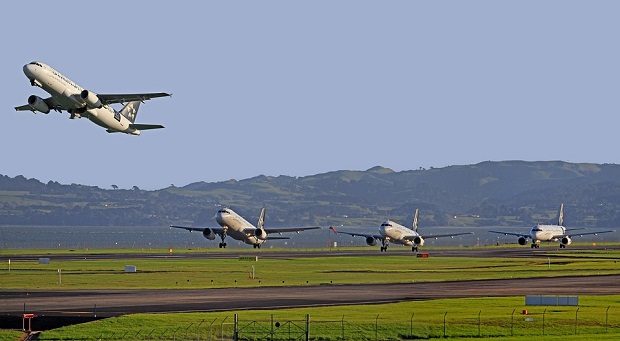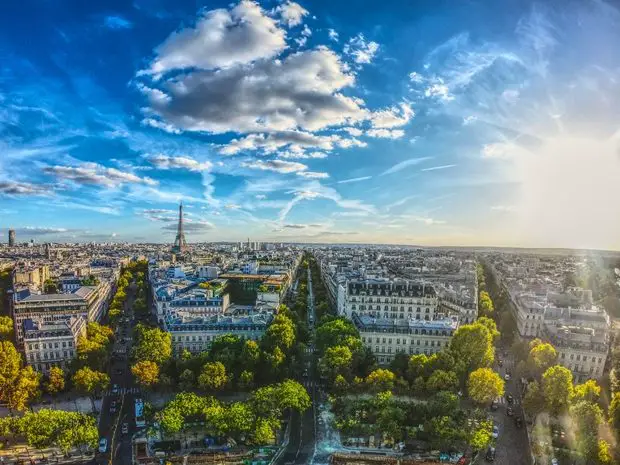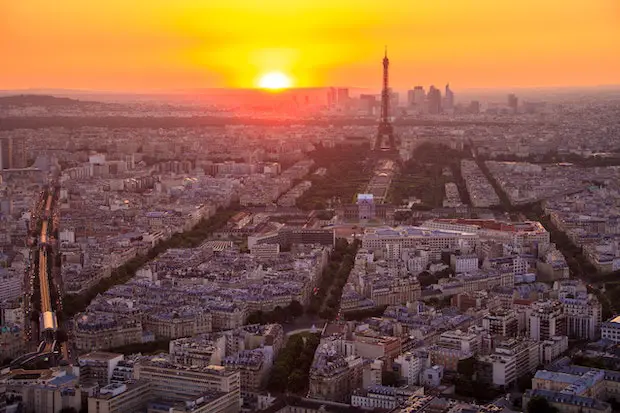For many travelers, the Eiffel Tower is a dream come true. But with crowds and high prices, is it still worth it? Here’s what to know before you go.
Why It’s Still a Must-See
It’s the Ultimate Icon of Paris
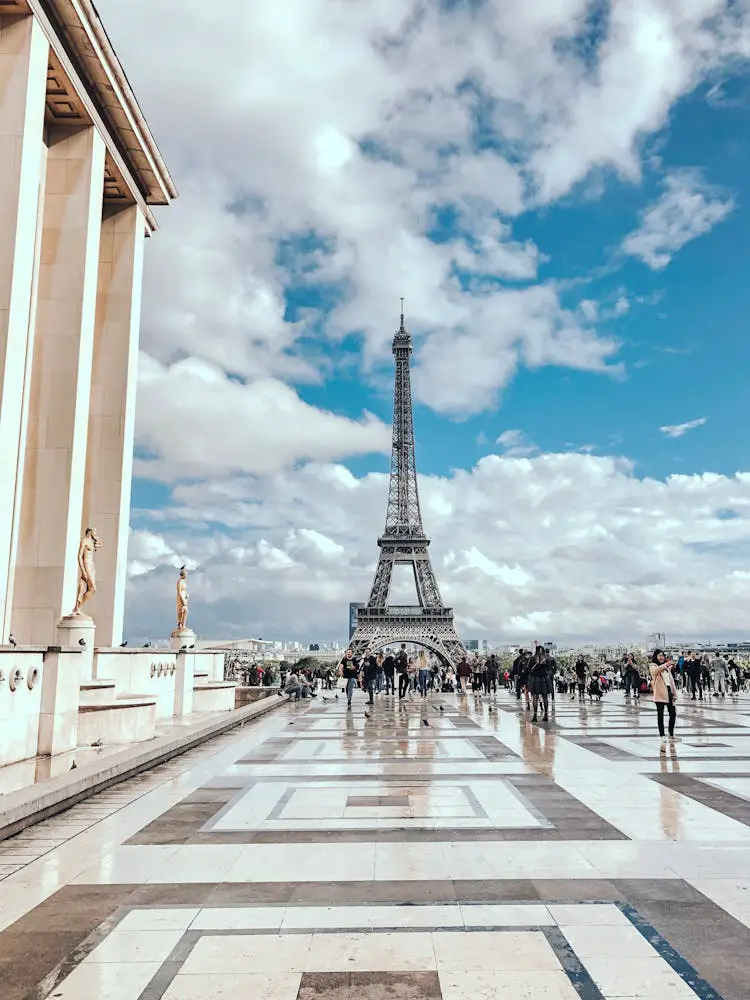
The Eiffel Tower was designed by engineer Gustave Eiffel and built in just over two years for the 1889 World’s Fair.
Back then, many people thought it was too tall or too strange, but it quickly became the symbol of Paris and of France itself.
It stands 1,063 feet tall (324 meters)—about the height of an 81-story skyscraper—and until 1930 it was the tallest man-made structure in the world.
Today, its special bronze-brown paint (officially called “Eiffel Tower Brown”) protects it from rust and gives it that unique look you’ve seen in postcards and movies.
Views From the Top Are Like No Other
Voir cette publication sur Instagram
Voir cette publication sur Instagram
When you ride the glass-walled elevator or climb the 704 steps to the second floor (about 377 feet or 115 meters up), Paris unfolds beneath you like a giant map.
You can identify the winding River Seine, the circular plaza of the Place de la Concorde, and the tiny model-like rooftops stretching toward the hills of Montmartre.
If you pay a little extra to go all the way to the summit, you’ll stand above the broadcasting antennas where radio and TV signals still pulse out over the city.
On a clear day, you can see more than 40 miles (65 km) away—sometimes even spotting the distant outline of the hills around Versailles!
The Tower Sparkles Like Magic at Night
Voir cette publication sur Instagram
Each evening from sunset until 1 AM, the Eiffel Tower performs its famous light show: 20,000 bulbs twinkle on for exactly five minutes at the start of every hour.
Imagine staring up as the entire metal structure flashes like a sparkling waterfall of light—that’s what locals and tourists call “la scintillation.”
Even people on cruise boats along the Seine or dining at nearby cafés pause to watch.
Best of all, this glittering spectacle is free—no ticket needed—and it creates a magical moment that feels straight out of a fairy tale.
The Summit Makes It Totally Worth It
Voir cette publication sur Instagram
If you go all the way to the top, you’ll reach the summit—at 276 meters (about 906 feet) high. It’s the highest point you can reach in Paris without getting in a plane.
From up there, you’ll see the whole city spread out in every direction. Look for landmarks like the Louvre, Montmartre, and even La Défense in the distance. On clear days, you might even spot the hills near Versailles.
Inside the summit, there’s a small exhibit showing Gustave Eiffel’s old office, with wax figures of him and his daughter. It’s a fun way to imagine what it looked like over 130 years ago.
And yes—there’s even a champagne bar at the top! You can toast your visit with a glass of bubbly while standing above the rooftops of Paris.
Voir cette publication sur Instagram
Things That Might Disappoint You
The Crowds Are Always There
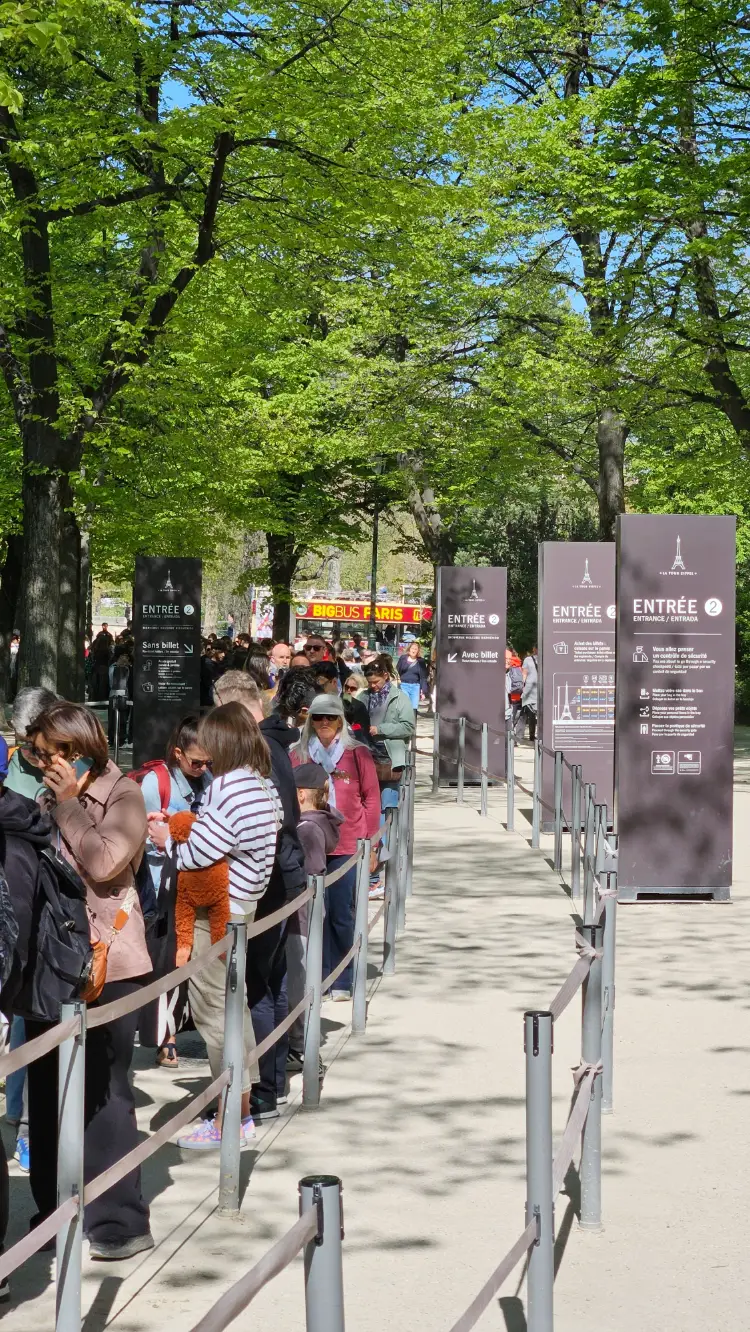
With roughly 7 million visitors each year, the Eiffel Tower is one of the world’s busiest paid monuments.
During peak season (May through September), lines to pass security can stretch for blocks, and you’ll queue a second time just for the elevator.
Even if you reserve online, you may still wait up to an hour—especially at lunchtime or late afternoon.
If you’re someone who prefers quiet, you might find the crowds a bit overwhelming and the experience less peaceful than you imagined.
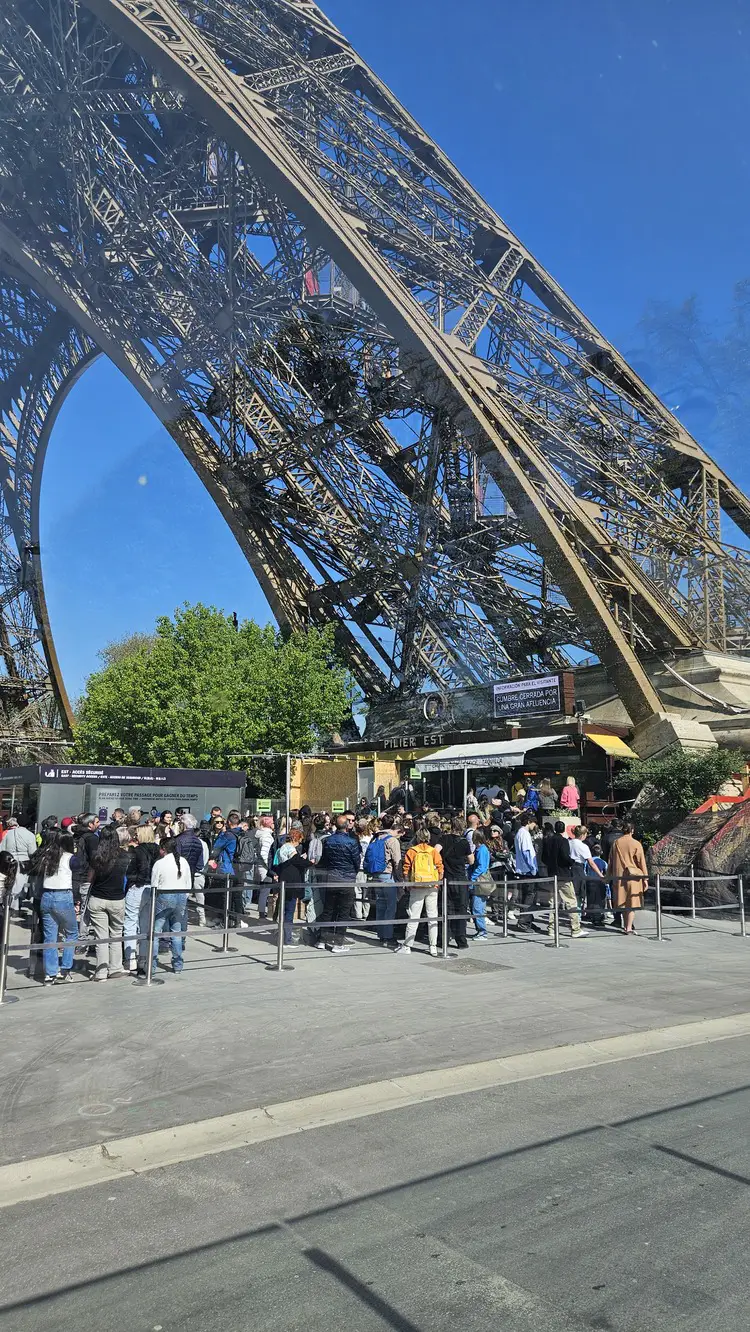
Tickets Can Be Expensive
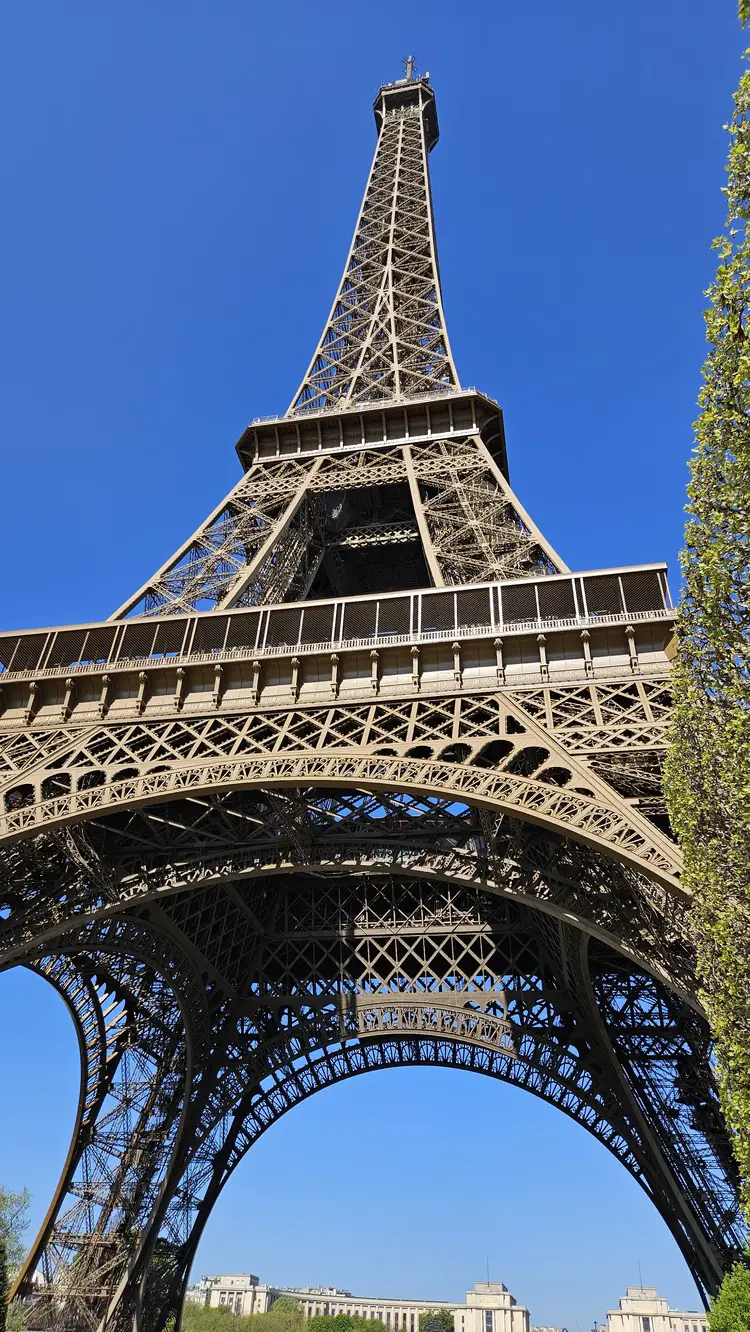
How much you pay depends on how high you want to go and how you get there.
As of 2025, adult tickets to the top with the elevator cost around €36. If you take the stairs to the second floor instead, it’s a bit cheaper.
Youth tickets (ages 12–24) cost less, and kids under 4 can go for free. But for families or groups, it still adds up fast—especially if you want to reach the summit.
You Can’t Walk Under the Tower for Free Anymore
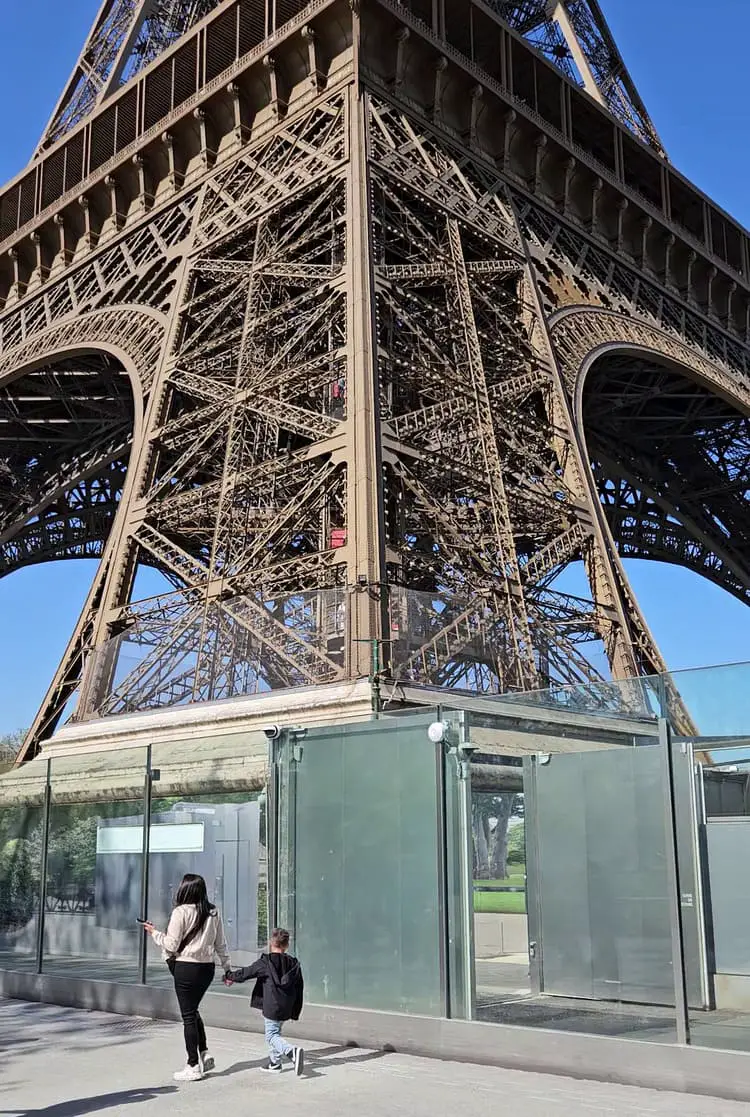
Since 2019, a clear glass wall has been built around the base of the Eiffel Tower.
This means you can no longer walk freely under its big metal legs without a ticket. Security checks and entry points are now part of the experience—even if you just want to get close.
You’ll need a valid ticket just to enter the ground-floor area. For some visitors, that’s a surprise, especially if they only planned to look around from below.
It’s Not a Quiet, Peaceful Visit
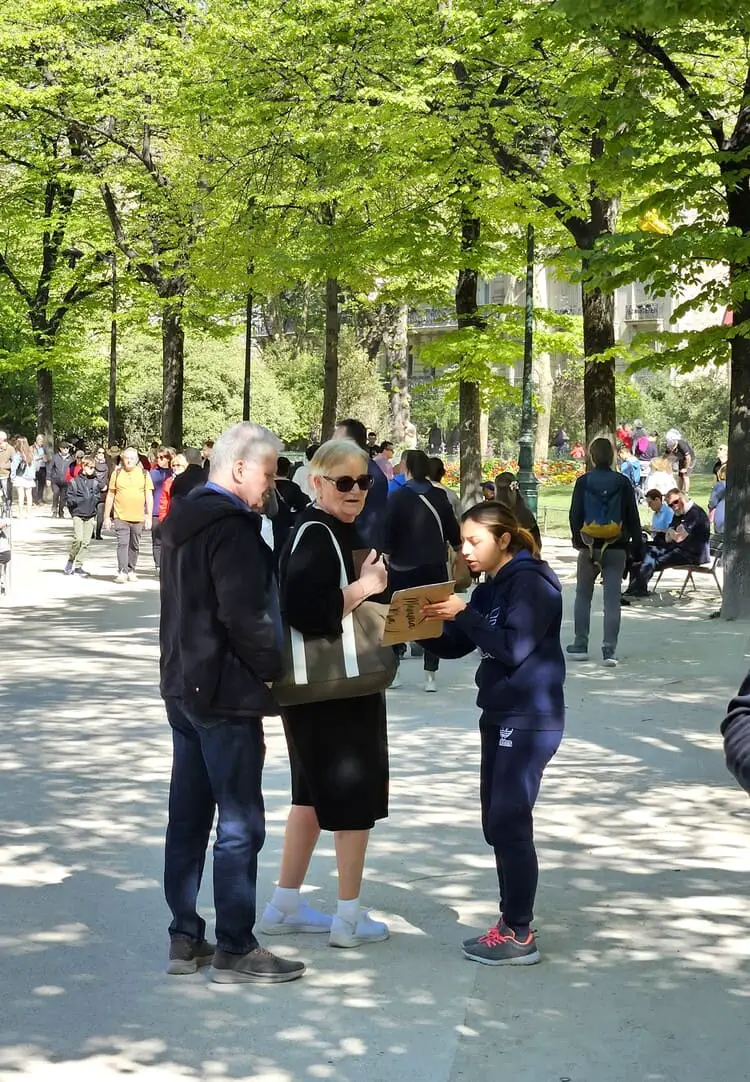
The Champ de Mars lawns and the surroundings of the Tower are magnets for street vendors, portrait artists, and, unfortunately, pickpockets.
You’ll see people offering “free” friendship bracelets or asking you to sign petitions—sometimes a trick to distract you while their partner reaches into your pocket.
To stay safe, keep your backpack in front of you, zip up all compartments, and carry only what you need. If someone approaches you too insistently, firmly say “No, thank you” and walk away.
Staying aware will help you enjoy the moment without any unwanted souvenirs.
Tips to Make It Worth It
The Best Times to Visit (And Times to Avoid)
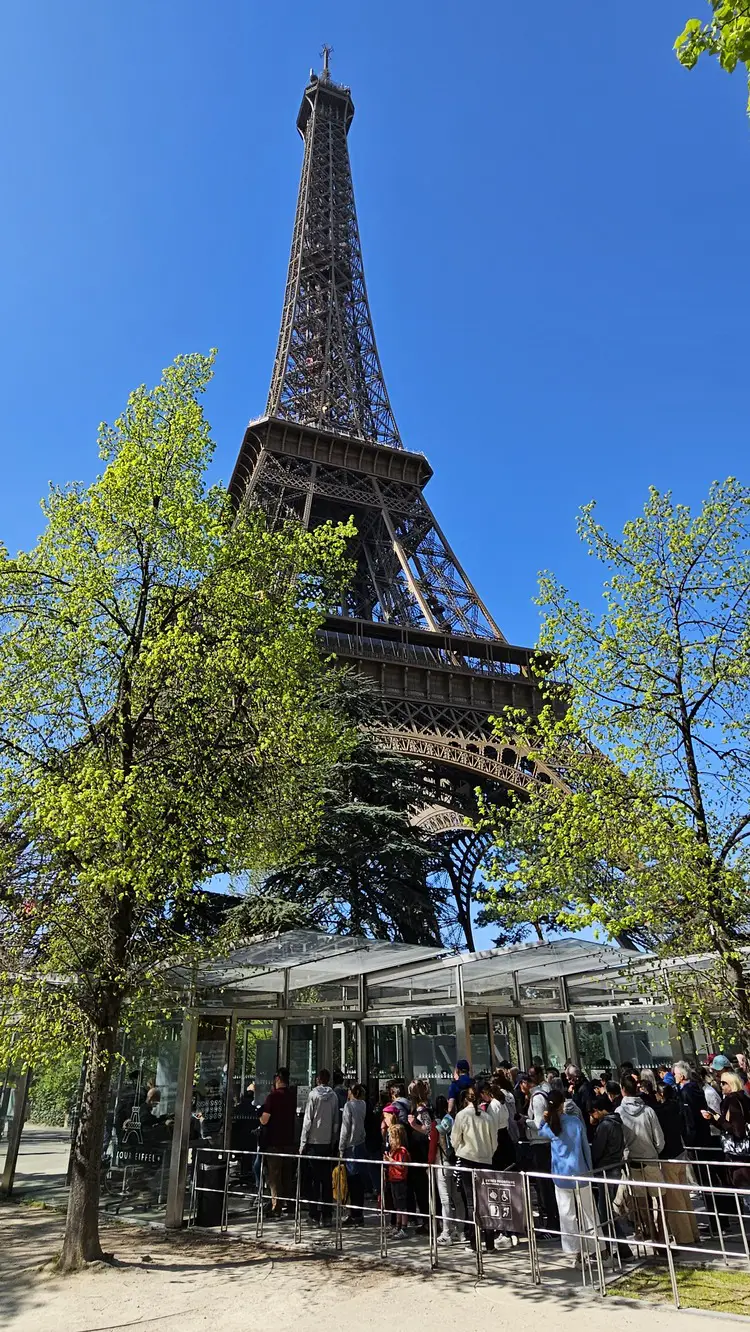
For the shortest lines, aim for opening time (9:30 AM) on a weekday in early spring or late autumn, when school is in session.
Early mornings often have clear skies and cool air, and you might catch the sunrise painting the Tower gold.
Evenings after 8 PM are another sweet spot: daytime crowds thin out, the Tower lights up, and you can still watch the first sparkle show of the night.
Try to avoid weekends, school holidays, and dates around major events like Bastille Day fireworks—those always draw extra crowds.
Where to Take the Best Photos Without Going Up
You don’t need a ticket to get amazing photos of the Eiffel Tower.
These spots around the tower offer some of the best free views—perfect for pictures, picnics, or just soaking in the scene.
Champ de Mars

This large park sits right at the foot of the Eiffel Tower. It’s perfect for relaxed photos with the Tower rising tall in the background.
Bring a blanket and snacks for a picnic on the grass—especially nice during sunset when the sky turns golden behind the Iron Lady.
Trocadéro Plaza
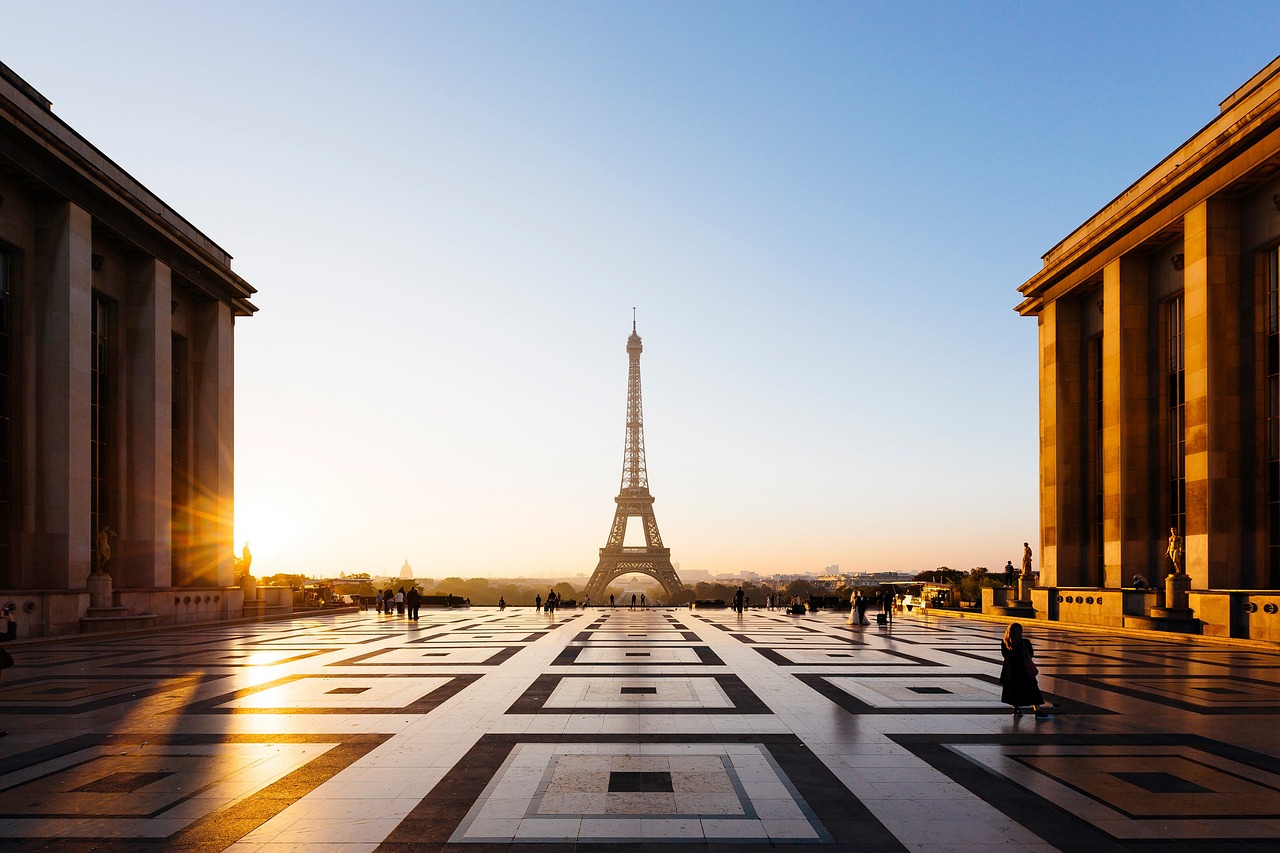
Across the river from the Tower, the Trocadéro offers one of the most iconic views in Paris.
The wide steps, fountains, and open space make it ideal for full-tower photos.
Come early in the morning or at night when the lights sparkle—it’s always impressive.
Bir-Hakeim Bridge
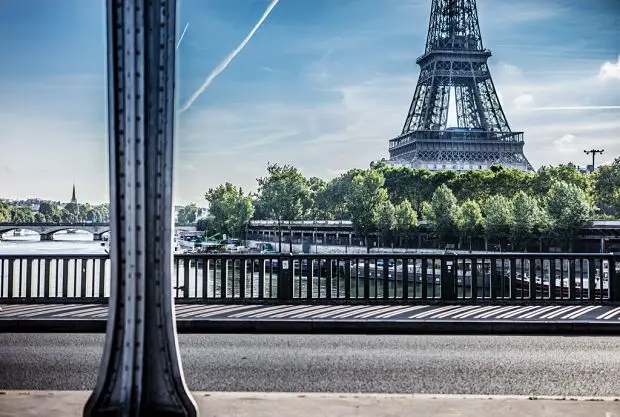
This bridge gives you a unique, artsy view of the Eiffel Tower.
Its metal arches frame the Tower perfectly, making it a favorite for photographers and movies (like Inception).
It’s usually less crowded, and the view is just as stunning.
Rue de l’Université
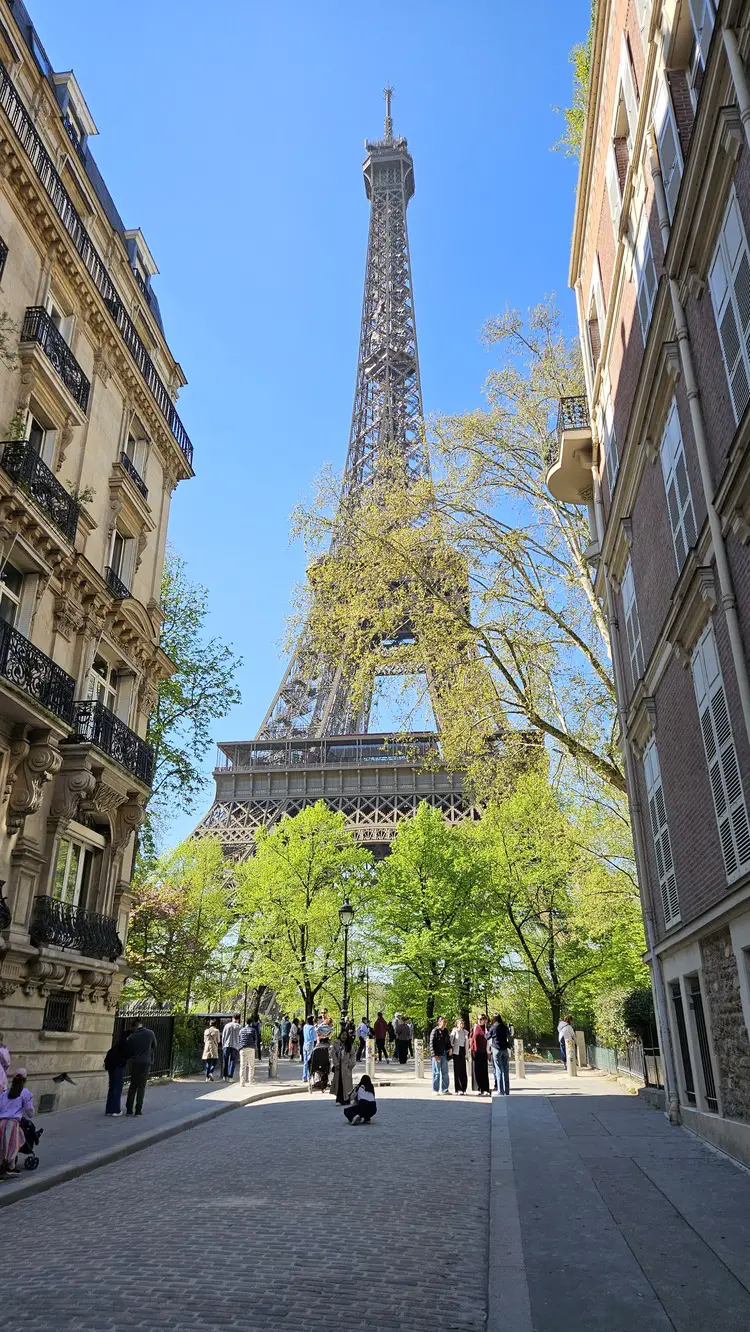
Between Avenue de la Bourdonnais and the Champ de Mars, this quiet street ends with a postcard view of the Eiffel Tower.
It’s popular on Instagram for a reason: you get a straight-on photo with classic Paris buildings on both sides.
How to Skip the Long Lines
- Buy in Advance on the Official Site: Choose your date, time slot, and whether you want stairs or elevator—this cuts out most of the queue.
- Opt for the Stairs: The line for the 704-step climb to the second floor is often shorter than the elevator line, plus you’ll burn off some crepes!
- Join a Guided Tour: Some small-group tours include fast-track entry and an audio guide, so you learn cool facts without waiting.
- Visit in Light Rain: A drizzle scares off many tourists, but the Tower still gleams, and you’ll enjoy shorter lines and a misty, atmospheric view.
By planning ahead, staying aware of your surroundings, and choosing the right time, you can turn a potentially tiring trip into an unforgettable adventure at one of the world’s most famous landmarks.
In the end, the Eiffel Tower still shines—if you know when and how to enjoy it best.

With a passion for travel and having visited over 50 countries, Dorian is eager to share his favorite spots and expert tips to help you explore Paris and France like a local.

